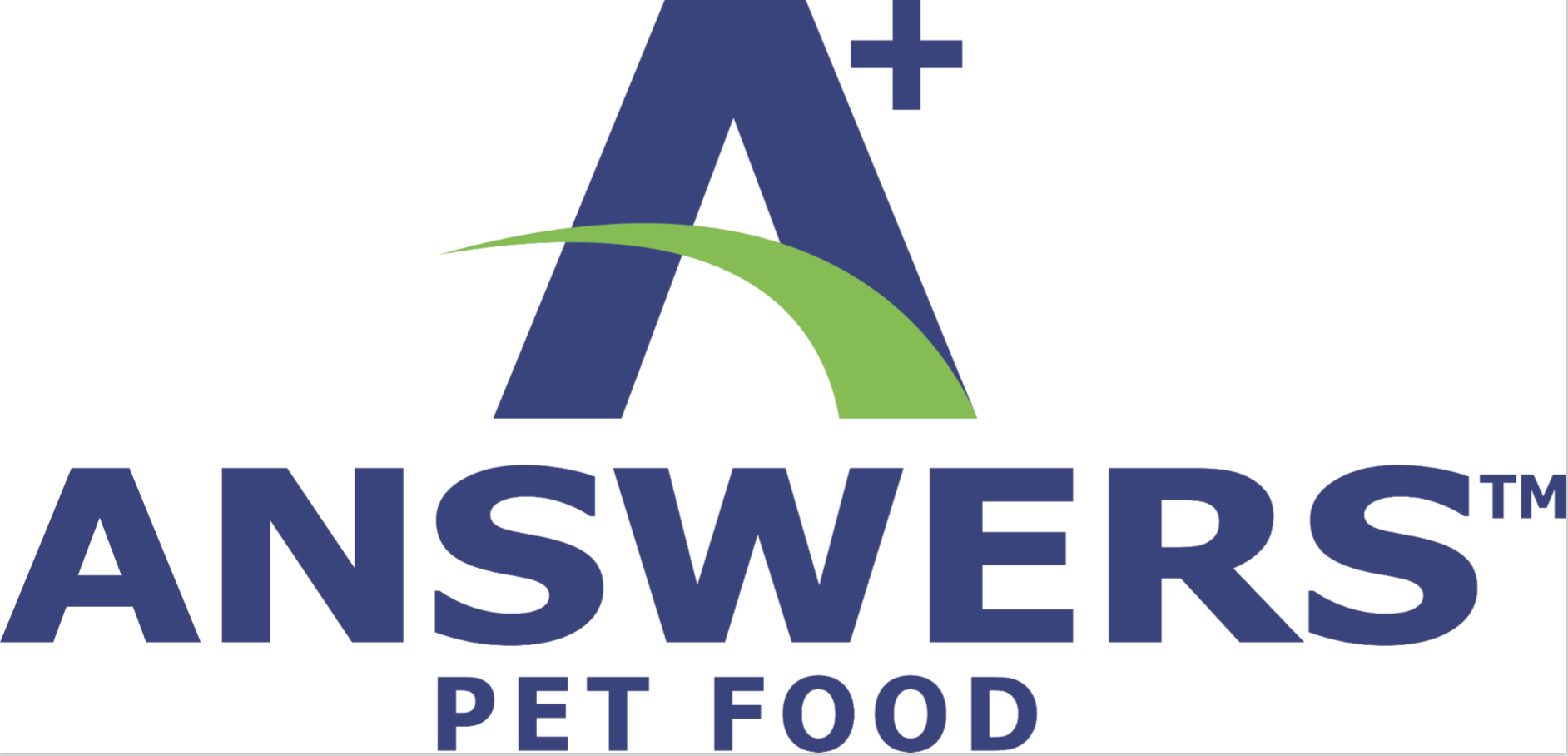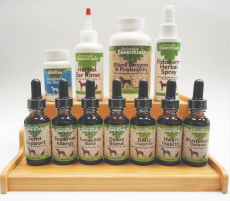Wellness Pet Supplies
I wanted to use my interview to introduce two companies that we carry at Wellness Pet Supplies. They’re two of my favorite companies because they’re standards and ethics are going above and beyond to provide the highest quality of products to keep your pets as healthy and thriving as possible. Answer’s Pet Food is a raw food company that takes raw food to another level. One that is far above anything I have ever seen. Like fermenting everything they make to protect against bacteria and feed their gut biome. Then there is Animal Essentials with herbal formulas for dogs and cats. Supporting anything from digestive issues to the need to detox from an infection. They are Master herbalist with formulas that I have seen be highly effective and supporting your pet’s ability to heal from whatever might be ailing them. Please enjoy these two interviews.
————————
Roxanne Stone
Answers Pet Food
 Hello Roxanne. Can you please tell us what your education and background is? And tell us about the work you do now?
Hello Roxanne. Can you please tell us what your education and background is? And tell us about the work you do now?
I’m one of the family owners in Answers Pet Food, and I’m responsible for quite a few tasks within the company such as sourcing our quality ingredients, formulation, research and development, and of course, one of the most important aspects of manufacturing, quality control and food safety.
I received both my bachelor’s degree and master’s degree in Nutrition and Food Science from Utah State University, in the mid-nineties and I worked for 16 years as a food scientist in many facets of the food industry, including manufacturing and laboratory food analysis. I joined my sister and other members of my family to start Answers Pet Food in 2009.
Why is animal nutrition so important to you?
I have always had a strong interest in all animals and the human / animal bonds that we form with our domesticated animals. These animals look to us to provide them with all their nutritional needs and the state of their health is a direct result of that. Based on my own research while working within the food industry I realized we were significantly failing them and wanted to contribute to making meaningful improvements to commercially available pet foods so we could improve the state of health for many of our companion animals.
What sets Answers Raw Pet Food apart from all the other brands out there?
In my opinion, raw foods are minimally processed, whole food ingredients that are never subjected to heat, pressure, dehydration or freeze drying. Answers is a unique brand of pet food in that we are one of the only brands that keeps the food in a true raw state by choosing to use competitive exclusion (or fermentation) as a form of protection against pathogens. Meaning we use good bacteria to protect the food from potential disease-causing bacteria. Using fermented ingredients, teeming with beneficial bacteria, not only protects the raw foods but it also creates necessary nutrients and makes many of the nutrients more available so that the food actually becomes more nutrient dense. We have many pet parents tell us that they can feed less of our foods compared to other raw pet food brands and their pets still maintain the same healthy weight and energy levels. This is due to the high-quality raw proteins and fats we use accompanied by the appropriate beneficial bacteria their digestive systems require.
I see you ferment all of your products. Why is fermentation so important?
The answer to that question is three-fold – it is the safest for the pet, most nutritious for the pet, and the only method that truly protects the food from manufacturing to bowl. Let me explain.
It is the safest for your pet because it doesn’t damage the food by adding chemical preservatives.
It is the most nutritious because fermentation actually creates more nutrients, like digestive enzymes, B Vitamins and Vitamin K2. It also pre-digests the food which is important for our carnivores who have short digestive systems. They must get fermented food to get all their required nutrients. Dogs will bury bones to ferment them.
Fermentation protects by competitive exclusion. Basically, it is a competition between good and bad bacteria. When you have a lot of good bacteria, bad bacteria cannot grow.
I cannot emphasize enough the importance of including fermented foods in every animals’ daily diet. In my opinion, bacteria, in general, is the number one most important missing ingredient in our modern day sterile, heavily processed commercial pet foods. The importance of a healthy gut as part of a properly functioning immune system is paramount. In order to have a healthy gut you need to feed raw foods that are alive and teeming with bacteria and active enzymes. Fermented foods are some of our best sources of beneficial bacteria and digestive enzymes. Pet owners need to remember that their companion carnivorous have very short digestive tracts with limited transit time in the intestines to absorb nutrients. Therefore, feeding fermented food is vital for proper and complete nutrient assimilation.
All of the animals that end up being a part of your pet food are raised as naturally and humanely as possible. How does the way animals are farmed affect the nutritional value and safety of the end product?
Our raw material suppliers are obviously a huge part of contributing the benefits of our products. If we couldn’t partner with farmers that can meet the high-quality standards we demand for our ingredients, our food would not perform as intended.
We develop partnerships with many of our livestock farmers because everything begins in the soil. It is essential that the livestock we use are fed a species appropriate diet and are handled humanely and ethically. We choose to use small-family farms that manage small herds and practice pasture centered raising of their livestock and general organic practices of their land. This has a big impact on the nutritional quality and safety of the food because animals that are fed a species appropriate diet will have a more appropriate nutrient profile. For instance, cattle that are 100% grass-fed will have the proper Omega 6 to Omega 3 fatty acid ratio (about 4 to 1), while grain fed cattle that are fed inappropriate GMO ingredients such as corn and soy will have unbalanced Omega 6 to Omega 3 fatty acid ratio (as high as 30:1). This can contribute to persistent inflammation in your pet leading to chronic disease conditions. Additionally, pasture raised livestock that are exposed to natural sunlight and fresh air will be healthier and shed less pathogenic bacteria.
As the owner of a holistic pet supply store I’m always on top of, and aware of, pet food recalls and have seen a pattern of the FDA forcing companies to do self-imposed recalls and often forcing them to High Pressure Pasteurize their products. What thoughts do you have on this matter, and how can we educate our community to be able to spot the difference between a valid recall or just a scare tactic?
Unfortunately, the FDA has decided to impose a “zero tolerance”, meaning no allowable tolerance of pathogens in any raw pet food diet, yet this is a very unscientific and highly unrealistic requirement. To clarify, it’s not that I’m advocating for high-pathogenic loads in raw foods, but to have zero is very unrealistic and actually not obtainable in a truly raw food.
In fact, this is well understood within the USDA (a separate government regulatory organization that oversees the meat industry) for human destined grocery store and restaurant raw meats because they have some tolerance level for pathogens even in highest quality type meats. It’s just bad science in my opinion to impose a “zero tolerance”. The testing methods they use at the FDA labs are so sensitive they can pick up as little as one viable or even a non-viable dead cell. If you do the research, you really have to look at what levels of pathogens actually make people sick. It is quite a high load (at least a million or more). We know pets can tolerate extremely high levels even more than most humans. I think you would agree with that, but let’s just look at humans. In a fermented raw food product, they may be present, you may be able to detect a cell of Salmonella or a cell of another opportunistic pathogen, but that does not mean that it’s a public health hazard or it is going to make somebody sick. That’s a very important fact that the FDA neglects to explain when they do public education on raw foods. Some people fear that it’s just too risky to serve pets fresh raw food. For instance, if my dog eats raw food and licks the baby, that could cross-contaminate, right? Well with fermented food, the dog is also eating all that beneficial bacteria, and that’s what’s going to be transferred to your family and to the rest of the household. So, it’s very important to dig deep into the facts and circumstances that led up to a product recall.
What dramatic improvements have you seen in any of the pets that eats Answers Pet Food?
Over the past 9 years of producing our raw fermented pet food diets we have seen some incredible improvements in the health of pets consuming our diets. We have even observed and documented the reversal of disease conditions such as severe dermatitis, yeast infections, kidney disease, IBD and even cancer. To learn more about some of our case studies you can go to https://www.answers4veterinarians.com.
What is something you might say to someone who is hesitant to feed their pet raw food? For example, people who are worried about bacteria.
I would strongly encourage them to do their own independent research and really look at the true statistics of foodborne illness associated with pets. They may be surprised that cooked and heavily processed foods such as kibble and canned foods with poor quality rendered ingredients pose greater risk to their pets than raw diets that are formulated with quality, human-grade ingredients.
What is one simple step pet owners should take today to improve the health of their pet?
Simply adding some component of fresh, non-processed food to your pets’ daily diet. Something as easy as cracking a raw egg over your dog’s daily meal or tossing in a couple tablespoons of fermented veggies such as sauerkraut or pouring on some fermented raw dairy products can make a significant impact on the health and well-being of your pet.
—————————
Greg Tilford
Animal Essentials
 Tell us about how you became an herbalist and how you started this company Animal Essentials. What got you into herbs for animals?
Tell us about how you became an herbalist and how you started this company Animal Essentials. What got you into herbs for animals?
It’s really hard to say when I realized I was an herbalist. It all began when I was a small boy, crawling through the coastal canyons of Southern California, showing 4th grade playmates which plants to eat, and how wild fennel can help with an upset stomach. In other words, herbalism has been a part of me.
In 1988 I left a law enforcement career and decided to return to my childhood studies, so to speak. My wife at the time, and I cashed in our retirement, bought 60 acres of remote land in Western Montana, and checked out of the rat race. We lived off the grid; on a mountainside for ten years, where my study and appreciation of medicinal plants eventually grew into the five books I have written on the subject.
While there I engaged in my own intensive study of how plants and animals relate and care for each other in nature. From that we realized two things: for millions of years plants have always been the medicine of choice of all animals, and still are. Second, nobody at the time was formulating and manufacturing herbal remedies for pets. So, we went to work. We started calling on veterinarians to find what they needed, then started working on formulations for them. That was in 1994.
Can pets have all the same herbs as us, and is there a limit where it becomes unsafe? Are there any herbs they can’t have?
With a few exceptions relating to sensitivities, and with some added considerations centering on bioavailability and palatability, most of the herbs we [humans] use can be used in animals as well. But, just like humans, more of something is not necessarily better, and anything taken in overabundance can be toxic. Also, herbs containing salicylates (willow bark; meadowsweet) or myristicin (nutmeg) can be toxic to cats. Plants containing the volatile oil jugulone, or anything that might induce vomiting would be a no-no for horses, because they cannot vomit.
A majority of people are not herbalists or knowledgeable about herbs. What is it that you think pet parents should know about herbs for animals?
Herbs, when used as part of a holistic approach to health care, are useful for strengthening deficient body systems that need support beyond that which is provided through diet alone. In other words, herbs help the body keep itself healthy. Purchase herbal remedies from companies that are led by experts that only focus on herbs for animals, and that have a good reputation in the natural pet industry. Follow their label instructions, and don’t hesitate to call the manufacturer if you have questions.
In a world of traditional medicine, how would you explain how and why herbs work to improve health?
Unlike most conventional drugs, which serve only to suppress symptoms of disease, herbs can be used to strengthen and support the body at what it is naturally equipped to do on its own: achieve and maintain a state of balanced health.
How closely related would you say herbs need to be to nutrition?
Using herbs without have good nutrition already in place is pointless. The body must have the fuels and tools it needs for herb to work. For instance, an ammine system that is deficient because of malnourishment will not benefit from the use of Echinacea, because the Echinacea can only stimulate a healthy immune system.
What would you say are the main issues that pet parents use herbs for and what herbs/formulas are they?
For calming dogs and cats during stressful events, like thunderstorms or fireworks. For this, take the nervous edge off with Tranquility Blend, a time-honored combination of valerian, skullcap, passion flower and oat flowering tops, in a sweet vegetable glycerin liquid that is easy to feed.
For urinary tract issues that include inflammation and/or crystals in the urine, Tinkle Tonic will help soothe and lubricate the urinary tract.
Herbs come in so many different forms like capsules, tinctures, and powders. Are any more effective or bioavailable than the others?
All forms are useful, but liquids are best in dogs and cats. Carnivores have short digestive tracts and fast metabolisms, so getting the active constituents to absorb quickly is key. This is why I am partial to low-alcohol liquid tinctures. They are easy to feed and get to where they need to go quickly, especially when fed on an empty stomach.
What is one simple step pet owners should take today to improve the health of their pet?
Add one small handful of fresh, leafy greens to your pet’s food dish each day. It will do wonders toward maintaining healthy digestion and keep blood sugar levels in check.
Learn More:
Wellness Pet Supplies
462 A St, Ashland
www.WellnessPetSupplies.com
541-708-6785

